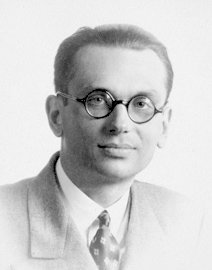A Quote by Thomas Jefferson
State a moral case to a plowman and a professor. The former will decide it as well, and often better than the latter, because he has not been led astray by artificial rules.
Related Quotes
What is the cause that one is hardened, and another readily moved to compunction? Listen! It springs from the will, in the latter case a good will, in the former an evil one. It springs also from the thoughts, in the former case evil thoughts, in the latter from the opposite; and similarly from actions, in the former case actions contrary to God, in the latter godly ones... it is by free choice of the will that every person either attains compunction and humility, or else becomes hard-hearted and proud.
The difference between a man who is led by opinion or emotion and one who is led by reason. The former, whether he will or not, performs things of which he is entirely ignorant; the latter is subordinate to no one, and only does those things which he knows to be of primary importance in his life, and which on that account he desires the most; and therefore I call the former a slave, but the latter free.
The development of mathematics toward greater precision has led, as is well known, to the formalization of large tracts of it, so that one can prove any theorem using nothing but a few mechanical rules... One might therefore conjecture that these axioms and rules of inference are sufficient to decide any mathematical question that can at all be formally expressed in these systems. It will be shown below that this is not the case, that on the contrary there are in the two systems mentioned relatively simple problems in the theory of integers that cannot be decided on the basis of the axioms.
If mythic violence is lawmaking, divine violence is law-?destroying; if the former sets boundaries, the latter boundlessly destroys them; if mythic violence brings at once guilt and retribution, divine power only expiates; if the former threatens, the latter strikes; if the former is bloody, the latter is lethal without spilling blood
[What Hayek] does not see, or will not admit, [is] that a return to "free" competition means for the great mass of people a tyranny probably worse, because more irresponsible, than that of the State. The trouble with competitions is that somebody wins them. Professor Hayek denies that free capitalism necessarily leads to monopoly, but in practice that is where it has led, and since the vast majority of people would far rather have State regimentation than slumps and unemployment, the drift towards collectivism is bound to continue if popular opinion has any say in the matter.
In order that our art may arrive at the degree of the sublime which I demand and hope for, it is imperative for dancers to divide their time and studies between the mind and the body, and that both become the object of their application; but, unfortunately, all is given to the latter and nothing to the former. The legs are rarely guided by the brain, and, since intelligence and taste do not reside in the feet, one often goes astray.
It has been our experience that if a young man decides to go on a mission, he can not only play well when he returns, he will often play better. If an athlete could play well before he went on a mission, he will definitely play well when he returns; and, if an athlete could not play well before his mission, he probably won't play well when he returns. However, his chances of playing well are perhaps better if he goes because he will return with . . . better work habits, and a better knowledge of what it takes to be successful.
































